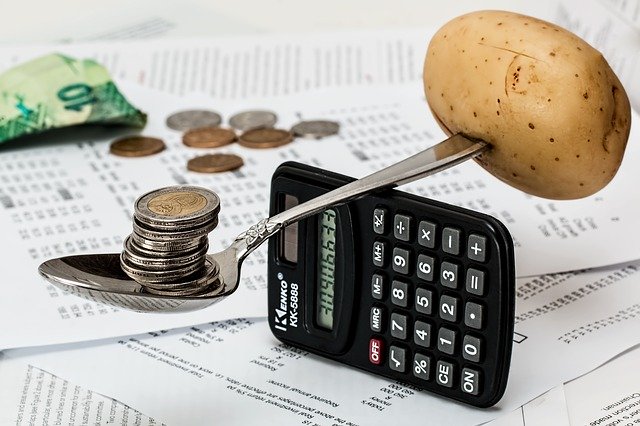There's a supply and demand problem in podcasting
This economic crisis has been all about yins and yangs.
Yin: U.S. unemployment has skyrocketed to Great Depression levels. Yang: the pandemic is inspiring tons of new entrepreneurs.
Yin: offline businesses related to bringing people together and moving people through space are collapsing. Yang: many online businesses, especially in e-commerce, are booming. And this has brought non-technical founders to the table in unprecedented numbers.
A big part of this new influx of indie hackers? New podcasters.
I'm not the only one to notice. I came across a clever theory on Twitter last week that attempts to explain it:

Anecdotes aside, I reached out to TransistorFM founder Justin Jackson to get a more data-driven perspective on podcasting. Specifically, I asked him if more people are starting new podcasts in the coronavirus age. "Yup," he told me. "New podcasts are up (by quite a bit)."
But if podcast production is the yang, podcast consumption is the yin:

Podcast consumption is massively down. Most of the comments to the poll suggested the lack of a work commute is to blame.
Marco Arment, the founder of the popular podcast player Overcast, more less confirmed the commute theory. He sent me the following graph, which shows Overcast's usage data since February. Each hump is a week, and the the low points correspond to weekends.

Note that listening habits haven't changed at all over the weekends, but only during the weekdays, when people previously had to drive to work or board public transportation.
But people aren't just listening less. They're listening to different shows.
The following analytics from Podtrac break the changes down by category.

News is the clear winner in the new podcast ecosystem (and in basically every other media ecosystem). Comedy shows are also making an aggressive recovery to their pre-pandemic levels. It's like people are self-medicating with laughter after unhappy bouts of news consumption.
For new podcasters who don't do news and don't do funny, this is rough terrain to navigate. But indie hackers wouldn't be indie hackers if they weren't among the people starting new shows anyway.
Toward the end of one of my posts back in March I mentioned that Rich Clominson of Failory was struggling with whether to launch his podcast in a crisis-distracted world. Ultimately he decided to move forward with the project. The Failory Podcast is about founders who have learned from past failures, and despite the fact that there's nothing newsy or comedic about the show, Rich told me he's cautiously optimistic about the numbers so far:
The podcast is going well, I guess. It's my first time in the podcast industry, so I'm not sure about the numbers yet. We've received 4,500 downloads so far (throughout 8 episodes) and we have +150-200 subscribers.
We have 7 more episodes recorded, and that will be the end of season 1, as we first want to validate the idea and see if there's good ROI from all the time and money investment.
As for ad revenue, that's going bad.
The detail about ads is no surprise. Without a backstop of subscriptions, no media company is safe right now. But the Failory founders should be encouraged by their early engagement numbers.
Another new podcast is in the works by No-Code MVP founder Bram Kanstein (who, interestingly enough, was just on the Indie Hackers podcast). He's starting a show called Early Ones, where he interviews early-stage founders about the challenges of getting started.

Before launching, Bram's recording a batch of 15 episodes to gain some momentum. I asked him about his goals for the show in light of the current decline in listeners. His reply:
My goals are 3-fold:
- doing what I love: talking to a new founder every day + learning about their journey in these early stages
- building my personal brand (I think I know a lot about these early stages and want to share that)
- by doing #2, showcasing my offerings: currently No-Code MVP
Making money with ads is something I do want to do, but mainly to try and cover the costs of my podcast editor.
It's all upside for Bram, as far as I can tell. Sure, there's a chance he won't recoup his hardware costs due to the advertising drought. But those costs can easily be reframed as a marketing investment. And in any case, it's a great excuse for him to call other men on the phone and have meaningful one-hour conversations.
So maybe it's wrong to solely view the current podcast ecosystem through the yin-and-yang lens of supply and demand. Especially when you consider that a tremendous number of new podcasters are just using their free time to enjoy a new project for its own sake. No better gateway drug to entrepreneurship than tinkering.
As for the entrepreneurs investing more than just their time into new podcasting projects? Now's a good opportunity to take a long-term view and level up the fundamentals. Those who survive in these conditions will thrive in the world to come. Business podcasts, for example, might not be doing so hot right now, but there's more than a little cause for optimism.
Enjoy the read?
I'm publishing a few of these roundups every month! My aim is to keep ahead of the curve on issues affecting indie hackers and to forward the message along to you.
You can subscribe here to get more pieces like this in the future.






Hey @channingallen good read. I'm optimistic about the podcasting landscape. The one thing I will add is that there is currently a huge bottleneck with the podcast discovery problem.
Almost all apps pull data from apple so you'll find the same shows as "top" or "trending" across all apps.
For anyone interesting in growing their audience and engaging with their listeners, please check out my product https://gritly.co
We're solving the discovery, engagement and monetization problem.
Gritly is built like a social network but for podcasts. ( Instagram for podcasts )
We allow hosts to interact with the audience in real-time
and most importantly get discovered by new listeners. Check it out --> https://gritly.co
Not sure there is a podcast discovery problem. I think podcasters do a poor job of distributing their podcast content.
Uploading to Apple, Spotify etc and expecting to be discovered is like writing an article and expecting google to put you on page 1. Doesn’t happen.
Podcasters need to distribute their episodes far more aggressively wherever their ideal audience is. And repurposing that episode into content that makes sense for the platform you distribute on (eg twitter posting is not the same as Instagram).
It’s great to see new platforms for podcasts (and I kind of contribute to that myself in a small way) but podcasters need to own the distribution and make more effort themselves as well.
Super interesting. One thing I've noticed about my own consumption behaviour over the past year or two, is that I prefer to watch podcasts now rather than just listen to them.
Joe Rogan being the quintessential example for an amusing Friday night in.
It's interesting that you compared Starting a podcast to Listening to a podcast.
Most people who start a podcast will quit within a year.
Most people who listen to a podcast will not listen until a podcast is past a year.
If more podcasts start now. There will be more successful podcasts a year from now.
In fact those that survive will be better and more interesting. Because they went through the muck of a year where ppl only listened to that which is essential.
And
I like to think there is always room at the top.
Meaning. Just start now. and if you provide great value, you'll win. No matter if there's 1 million podcasts or 1 billion.
Very insightful, and I agree - I generally don't like to start listening to podcasts that haven't been around a while - and once I find one, I go thru most (or all) of the old episodes to catchup first.
I also treat most TV shows the same way - don't want to bother getting into some new series if it is going to be cancelled after a season...I like finding some hidden gem with many seasons already available and then binge watching them.
Totally agree. People want good quality content. You can’t be mediocre.
People will find time to listen to the good stuff.
What a coincidence that I started my podcast in the midst of this surge without even being aware of it 😅
Regarding the demand - I am personally not worried as I believe it will climb back once we deal with this virus. I have been saving quite a lot of podcasts and once I am back to commuting and gym, I will have quite a bit to go through.
Any entrepreneurs out there interested in SEO or affiliate marketing should check it out: https://benasdigital.com/podcast/
Very interesting to read as I literally said to mum yesterday - I have completely stopped listening to podcasts!
Excellent write up!
There are many nuggets on the podcast industry that you haven't seen on "text" in the internet, the big problem of podcasts is time ! Even if we listen x2, someone who makes podcasts -> summary will make it big
Lots of folks have created summary services, but none have taken off (ie. http://www.thepodcastwire.com/)
I think, in reality, most folks want to listen to the full episodes when they are topics and/or hosts that they care about.
Yes but great summaries + (subscribing) and many other little features it will take off, just not good execution
Trying to do something at https://podboxer.com
Slowly growing the episode resource on the site. More side project hobby right now.
Bet you the listeners in comedy converted to watching material on youtube/netflix
Nice
increased supply is good. And with alternate ways to monetize and measure success we should see lots of them stick around for a while.
I don't know where this glut of podcasts are - I for one have a very hard time finding anything new to listen to - maybe looking in the wrong place. I would like to listen to up to 2 hours per day (commute plus lunchtime walks), but find I rarely find 30 minutes a day of good content, and end up using audible to fill the gaps.
Maybe a good business opportunity for someone to vet/review/publicize good podcasts making use of a listeners history likes and dislikes to customize the recommendations.
I'm by no means an expert in the field, but for what it's worth, to reiterate @GritCom and his comment below, I am optimistic. At least as a listener, the options are plenty, and the quality is, in general, very high. Even for podcasts in fields I've never tried before. That general standard is a good sign for the future health and longevity of the platform, I'd say.
As someone about to launch my own podcast at moonlightgamedevs.com, I 100% agree with what you said. Ever since I started working from home, I rarely listen to podcasts because I mainly consumed them during the commute.
Great post, I’m normally a podcast fiend and I’m lucky if I listen to one every 3 days now. I wrote about this supply glut in podcasts and virtual events (with a little Hey Arnold mixed in) here: https://notboring.substack.com/p/wackos-and-zoomglts
TL;DR in oversupply, curation and exclusivity win
This comment was deleted a year ago.
This comment was deleted 4 years ago.
This comment was deleted 4 years ago.
As @GritCom has said, I think there's a huge discovery problem. The feedback from Failory podcast listeners has been really great, so far, and a great percentage of the downloads converted into subscribers of the pod (higher than % user to newsletter subscribers on our site), but we aren't being able to reach a huge audience.
I’m starting to think that podcasters shouldn’t be seeing it as a discovery problem. Recording episodes and waiting to be discovered is like writing articles and hoping that google will add it to page 1.
(I’m talking about podcasters as a whole and singling you out specifically)
You have to take each episode and make it “discoverable” outside of the podcast players. Distribute it as far and widely as you can. Wherever your audience is.
And because it’s audio you need to repurpose into multiple pieces of content - written, images and video if you can. Tailoring for the platforms where your audience hangs out. And create an awesome article for your site with SEO in mind (not just a transcript).
You can use all that content to drive people to subscribe to your podcast or to your email list. If they’re on your email list it becomes easier to get them to listen to future episodes.
I don’t see many podcasters doing this well. Or even trying.
There’s so much gold in an episode that it can create huge amounts of additional content.
My friend runs a service doing the article part of this - not suggesting you go and hire someone but she talks about repurposing podcasts on her Twitter https://twitter.com/J_Schiff
In summary, don’t think of it as a podcast discovery problem, it’s a podcasters distribution problem.
Yeah, that's also true. I do my part with promotion, though always trying to avoid to be too spammy (that can be quite difficult if you publish +1 episode/week).
As for re-purposing the content, I personally haven't tried it much. I still believe in some cases looking to rank on Google with transcription isn't really possible, particularly when doing an interview podcast. Instead of transcription, it would require to pick a topic of the podcast and write about it. That would end up being more like a separate article from the episode.
You're right re transcription. By all means have them - they're useful. But rewriting the episode into an article and bring in extra ideas and resources to add more to the episode - that's where it's going to help you. Potentially with SEO (you hope) but also more shareable. I think Social Media Marketing Podcast does a good job of an article for each episode (find them here: https://www.socialmediaexaminer.com/category/podcast-episodes/)
Also take shorter quotes and ideas from the podcast. Tweet sized or small threads around an idea. Or Linkedin etc. You could even extract some summarized learnings or interesting points and post here.
It's all work and you can only do so much. But I really believe we are long past the point where it was easy to get discovered on a podcast platform. Too many podcasts, too many episodes.